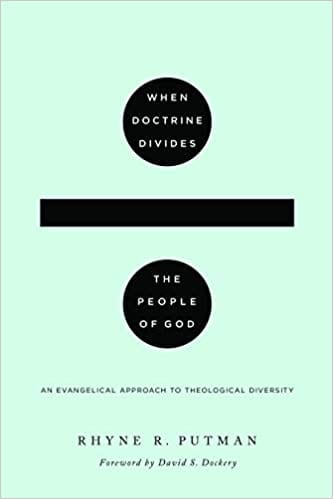BEN: Confirmation bias is indeed a problem when it comes to theologizing on the basis of the Biblical text. We all bring our presuppositions to the reading of the Bible, and sometimes even being very aware of what they are is not enough to overcome the problem. Some people simply despair of getting at the real meaning of the text precisely because they are aware of their own biases, and would rather not suffer the paralysis of over-analysis. They retreat to ‘you ask me how I know he lives/ he lives within my heart’. What practical advice do you give to those who suffer this kind of gridlock in thinking about theology and doctrine and as a result end up just throwing up their hands and giving way to pure fideism (‘don’t ask me how I know this, I just do’)?
RHYNE: In my discussion of confirmation bias, I work through some practical advice given by educational psychologists and criminologists. First, we should investigate hypotheses which disagree with our working hypothesis or belief. In theology, this means credobaptist students should read the best arguments for paedobaptism, Calvinists should read the best Arminians (and not just the straw men), so on and so forth. We may ask the question “What sort of evidence or line of reasoning could convince me of an opposing position?” There are other critical criteria we can ask of our own positions which may or may not give us a more honest analysis of them. I think we need to assess our own motives for holding beliefs: “Am I really interested in knowing the truth or being right?” “What will it cost me if I hold a different opinion?”
The paralysis of analysis is a real problem in theology. There are some issues on which we must sometimes simply commit to a position. If we have weighed that position with the work of exegesis and reasonable tests like those described above, we can embrace it with some degree of tentativeness. I hold my theological positions with varying degrees of confidence (especially in more tertiary matters). The things the tradition broadly agrees on—the deity of Jesus, the Trinity, the authority of Scripture—are no-brainers for me. Things we disagree about—the specifics of eschatology, the spiritual gifts, election, etc.—are issues I have opinions about but recognize I can be convinced otherwise. I know there are things the Lord will correct me about when I am in his presence, but I do not yet know which matters (or else I would change my opinion now). I will strive to live in grace for the time being and encourage others to do likewise.













